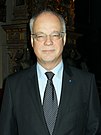1996 Ostric regional election
| |||||||||||||||||||||||||||||||||||||||||||||||||||||||||||||||||||||||||||
All 15 seats in the Dorada 8 seats needed for a majority | |||||||||||||||||||||||||||||||||||||||||||||||||||||||||||||||||||||||||||
|---|---|---|---|---|---|---|---|---|---|---|---|---|---|---|---|---|---|---|---|---|---|---|---|---|---|---|---|---|---|---|---|---|---|---|---|---|---|---|---|---|---|---|---|---|---|---|---|---|---|---|---|---|---|---|---|---|---|---|---|---|---|---|---|---|---|---|---|---|---|---|---|---|---|---|---|
| |||||||||||||||||||||||||||||||||||||||||||||||||||||||||||||||||||||||||||
| |||||||||||||||||||||||||||||||||||||||||||||||||||||||||||||||||||||||||||
The 4th Ostric regional election occurred on 24 March 1996. Called just over a year after the previous election, the snap election saw a tight race between the Social Democratic Radical Party, the Ostric People's Party, and the Ostric Liberal Party, with all three parties gaining well over 15 percent of the vote. In the end, the SRPO and People's Party entered a grand coalition.
Background
Winning only a plurality in the previous election, the Ostric People's Party under Robert Szucher faced difficulty passing its platform, especially the 1995 budget, as the unionist opposition called for new elections. This reached a head during late 1995 and early 1996, when the government tried to gain approval for a referendum on independence.
In February of 1996, the SRPO successfully passed a vote of no confidence against the Szucher government, granting the opposition the chance to form its own coalition. A governing majority was formed from the SRPO, Liberals, and NKP under the leadership of SRPO leader Jón Burgstaller as Minister-Chairman. However, the new "unity government" failed to agree on a regional budget, instead calling for new election mere weeks after its formation.
Electoral system
The electorate elects all fifteen members of the Dorada using single non-transferable vote in one island-wide multi-member constituency.
Results
| Party | Votes | % | Seats | +/– | |
|---|---|---|---|---|---|
| Social Democratic Radical Party | 4,199 | 30.49 | 5 | +1 | |
| Ostric People's Party | 3,630 | 26.36 | 4 | –1 | |
| Ostric Liberal Party | 2,420 | 17.57 | 3 | +1 | |
| Ostric Party | 1,567 | 11.38 | 2 | 0 | |
| National Consolidation Party | 1,511 | 10.97 | 1 | –1 | |
| Green Party | 445 | 3.23 | 0 | 0 | |
| Total | 13,772 | 100 | 15 | 0 | |
| Registered voters/turnout | 17,798 | 77.38 | – | – | |
Reactions
After the results of the election where announced, Ostric media questioned how the new government would be form, although it seemed clear that Burgstaller and his SRPO would stay in government. Initially a SRPO-Liberal coalition was discussed, but worry over the unpopular 1990-94 coalition agreement and disapproval from the parties' federal counterparts caused negotiations to stall.
With an unionist government seemingly hard to form, Burgstaller proposed a "Red-Green" coalition with the People's Party, crossing nationalist-unionist boundaries to create a purely left-leaning and regionalist governing majority. People's Party leader Robert Szucher agreed to the terms, forming the first cross-sectarian government in Ostric politics.


